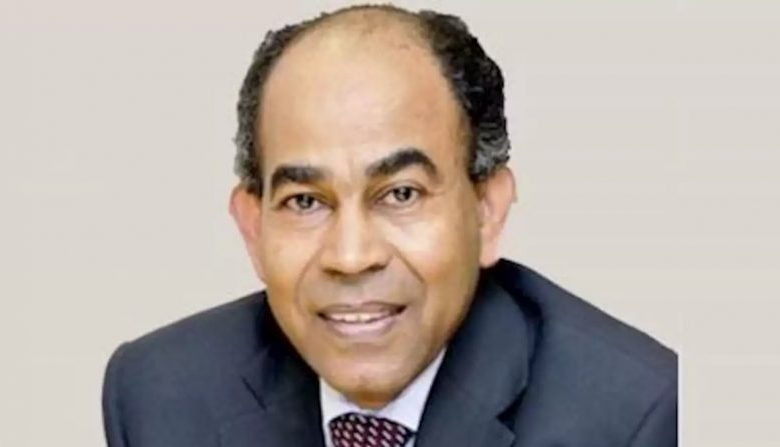Sudan… A War Against the Citizen

By: Osman Mirghani
There is no such thing as a “gentle” war; all wars are inherently brutal, differing only in the degree of their brutality and the costs borne by those who suffer from their flames. History confirms that no war has ever been free from suffering, pain, and destruction, and often, the innocent pay the highest price.
The war in Sudan is no exception, both in the suffering it has caused and in the fact that civilians are among its greatest victims. The war has caused massive destruction, claimed many lives, displaced millions inside and outside the country, and created humanitarian crises whose effects will last for decades. What has amplified the suffering is that the targeting of civilians has been systematic, direct, and intense, to the extent that many say it is a war against the citizen, with the main accusations directed at the “Rapid Support Forces.”
Recently, after their successive defeats in the state of Al-Jazeera and the cities of Bahri and Khartoum, the “Rapid Support Forces” resorted to a vengeful strategy by targeting civilians, bombing markets, hospitals, and deliberately shelling electricity and water stations—actions that constitute a flagrant violation of international law and the conventions and laws that mandate the protection of civilians and civilian infrastructure. Before people could recover from the shock of the bombing of the Saudi Hospital in the city of El Fasher, North Darfur, by a drone belonging to the Rapid Support Forces late last month, which killed 70 people and injured over a hundred, the tragedy of the bombing of the “Sabreen” market in Omdurman last Saturday occurred, killing 54 people and injuring more than 150 others. This was followed by the bombing of the “No” hospital in Omdurman yesterday, resulting in 6 deaths and 38 injuries.
These were just examples of the horrifying targeting of civilians, which has been ongoing in various forms and intensities since the war began, yet it remains one of its most prominent features.
From the outset, civilians were targeted by having their homes occupied, forcibly evicted, looted, and destroyed. The tactics used by the “Rapid Support Forces” forced millions of Sudanese to flee their homes, with international organizations estimating that more than ten million people have been displaced, over two million of whom have crossed into neighboring countries, while the rest are scattered as internally displaced persons.
This was accompanied by the systematic destruction of infrastructure, factories, service facilities, healthcare centers, looting of banks and markets, and even schools, universities, and museums were not spared.
The “Rapid Support Forces” have also been involved in systematic sexual violence, which has been used as a weapon of war. Many horrifying stories have been documented by local and international organizations and media outlets, and even more remain unreported due to the fear of repercussions in a conservative society like Sudan.
Along with all this, one of the darkest and most gruesome aspects is the ongoing genocide based on ethnic and racial motives, or driven by revenge, whether in Darfur, Al-Jazeera, or elsewhere. These operations have been documented by international organizations and human rights groups, and because of them, the U.S. government has declared that the “Rapid Support Forces” and their allied militias are committing genocide.
Amid the polarization and sharp divisions in the Sudanese scene, some will argue that violations are occurring on both sides, meaning from the army and the “Rapid Support Forces.” However, in reality, no objective comparison can be made. The violations committed by the army were either due to errors in airstrikes or artillery shelling, or individual misconducts condemned by the army itself, which pledged to pursue and prosecute the perpetrators. On the other hand, the violations by the “Rapid Support Forces” were systematic, widespread, and mostly targeted at civilians.
The most important testimony in this regard comes from the citizens themselves, as throughout the war, they have fled their areas whenever the “Rapid Support Forces” entered, seeking refuge in areas controlled by the army in search of safety. This can also be seen in the spontaneous celebrations in every area the army enters and the “Rapid Support Forces” are driven out, as witnessed repeatedly in recent weeks and days in Al-Jazeera, Khartoum, and Kordofan, with wide interaction in many cities across the country.
This brutal war will have significant repercussions on the future Sudanese landscape. As a result of the actions associated with the “Rapid Support Forces,” there has emerged a huge gap between them and the citizens, who no longer accept them and reject the idea of any future role for them in the country. The army, too, has become more resolute regarding negotiations, now firmly committed to continuing the fight “until the militia is eliminated,” according to General Abdel Fattah al-Burhan.
Will this be the only change in the scene?
No, there will be other political and social changes that will need to be addressed in a later article. Sudan after the war will undoubtedly be different from Sudan before it.



